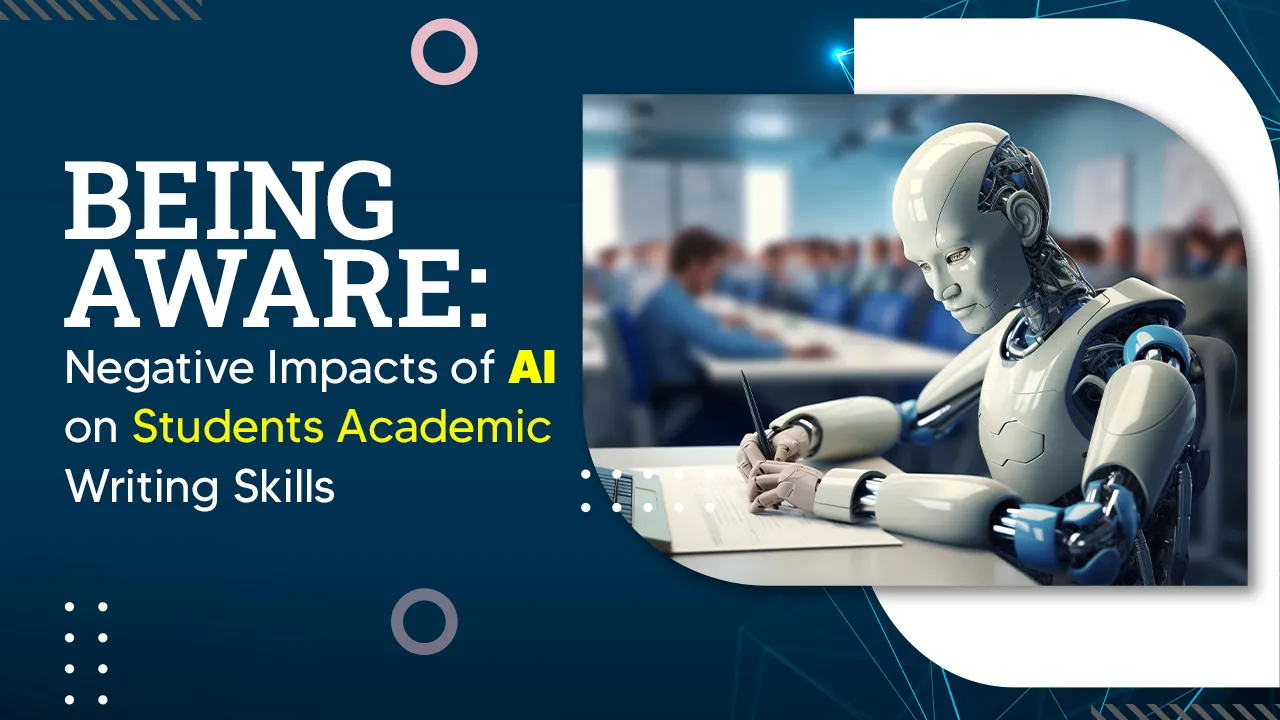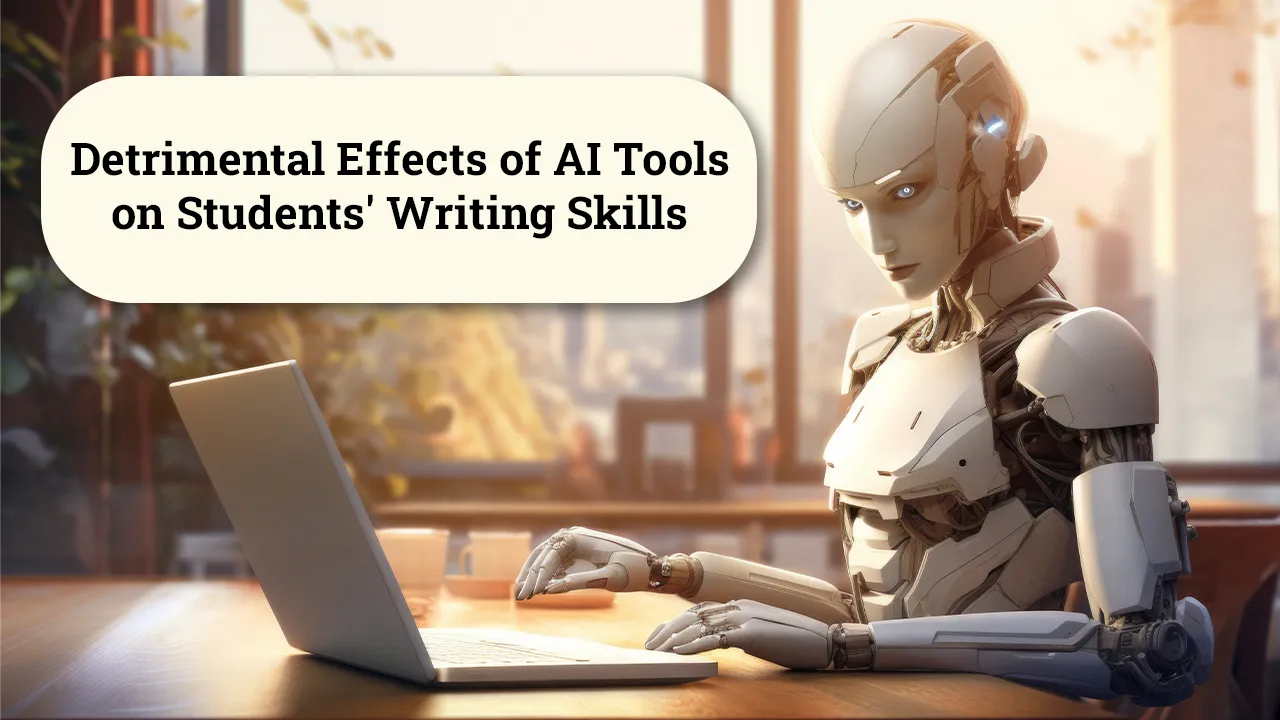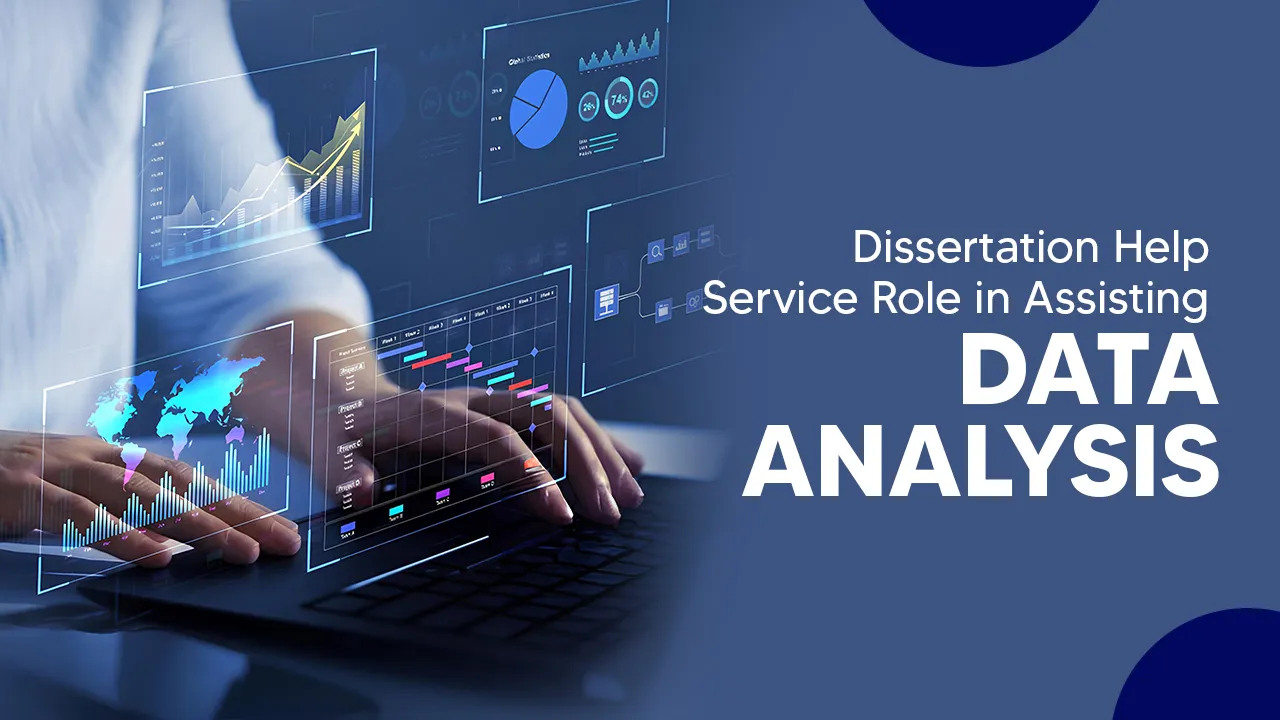How AI Tools Can Undermine Students' Academic Writing Skills

- Introduction
- Integration of AI in Education
- The Negative Impact of AI on the Academic Writing Skills of Students
- The Intricacies of AI as a Distraction in the Learning Journey
- The Impacts on Language Development
- Complications in Authentic Authorship Evaluation
- Psychological Impact on Students
- AI's Influence on Learning Outcomes
- Unravelling the Perils of Misinterpretation and Misrepresentation
- Frequently Asked Questions (FAQ's)
- Conclusion
Introduction
Along with essay writing help, Artificial Intelligence (AI) has revolutionised various industries, including education. AI-powered tools and technologies are increasingly integrated into classrooms to streamline various processes. Enhance learning experiences and improve student outcomes.
Although AI usually offers multiple benefits, it also comes with some drawbacks that significantly affect students' academic writing skills. In the academic journey, therefore, numerous benefits are available that support students in making academic work more successful.
Integration of AI in Education
AI is making its way in the field of education by developing AI-powered writing tools and automated essay grading systems. The purpose of hiring an assignment writer is to provide complete help for students in writing essays, identifying grammatical errors, and providing immediate feedback on their writing.

The Negative Impact of AI on the Academic Writing Skills of Students
1. Over-Reliance on AI Tools
One of the primary concerns regarding the impact of AI on students' academic writing skills is the potential for over-reliance on AI tools. With the ease of using AI-powered writing assistants, students can depend on these tools for their writing tasks, but for getting ideas to draft the work, they should not completely depend on them.
As a result, they may neglect to develop their writing abilities, including critical thinking and analytical skills. Relying too heavily on AI to 'do my essay' can hinder students from developing their writing skills and learning to express their own ideas effectively.
2. Lack of Critical Thinking and Creativity
AI tools are designed to provide quick and efficient solutions based on existing patterns and data. While this can be beneficial for preparing material, it can inhibit students' critical thinking and creativity.
When students rely on AI-generated responses, they may be less inclined to think deeply about the topic, seek new perspectives, or develop innovative ideas independently. This may hinder their dissertation writing skills and limit their ability to produce original and practical academic work.
3. Less Attention to Grammar and Spelling
AI writing tools often include grammar and spelling correction features, which can be helpful for students to spot and correct errors. However, this facility may lead to complacency among the students. If they rely solely on AI to correct their mistakes, they won't be able to pay as much attention to the mechanics of writing, including grammar, punctuation, and spelling.
As a result, their writing proficiency may suffer, and they may not be able to develop a strong foundation in language conventions. However, there are many AI Proofreading services that provide students with writing assignments free of charge with no typo errors.
4. Loss of Originality and Plagiarism Concerns
AI-generated content can sometimes lack originality, as it is often based on existing data and patterns. If students frequently use AI-generated content or paraphrase AI-generated text, they may inadvertently create work that lacks authenticity.
This raises concerns about plagiarism, as students may inadvertently or intentionally present AI-generated content as their own. Such practices can have serious academic consequences, as plagiarism is a serious ethical violation in educational settings.

The Intricacies of AI as a Distraction in the Learning Journey
1. AI-powered Diversions on Social Media
Including artificial intelligence-driven diversions, such as chatbots and social media algorithms, can profoundly sway students' focus away from their academic writing responsibilities.
2. Challenges in Time Management
Using AI tools may pose significant challenges in managing time effectively, as students might succumb to the temptation of dedicating excessive hours to AI activities, ultimately diverting them from their primary writing tasks. Assignment help services also provide writing services at affordable prices and timely delivery.
The Impacts on Language Development
1. The Ramifications of Limited Lexicon and Linguistic Proficiency
The continued reliance on artificial intelligence may impede students' potential to augment their lexicon and linguistic proficiencies.
2. Diminished Artistry in Writing
Excessive utilisation of AI tools could hinder the innate eloquence in writing and curtail the fluency thereof.
Complications in Authentic Authorship Evaluation
1. The Enigma of Verifying Genuine Authorship
AI-generated content can obscure the distinction between original compositions and machine-crafted texts, posing challenges in verifying genuine authorship.
2. Ensuring Ethical Implementation of AI Tools
A vital aspect is imparting ethical education to students, guiding them in the ethical and responsible utilisation of AI tools to avoid academic dishonesty.
Psychological Impact on Students
1. Amplified Distress and Strain
The demand for generating faultless AI-fabricated content may engender heightened stress and unease among students.
2. Erosion of Self-Assurance
An excessive dependence on AI tools can erode students' confidence in their compositional prowess.
AI's Influence on Learning Outcomes
1. Effect on Comprehensive Academic Performance
Inadequate writing proficiencies, stemming from overreliance on AI, can substantially impact students' overall academic achievements.
2. Diminished Analytical Acumen
Students could falter in fostering robust analytical skills if they excessively lean on AI-constructed materials. Writing services give an ethical writing service to do deep analysis with SPSS help.
Unravelling the Perils of Misinterpretation and Misrepresentation
1. AI-Generated Content's Inaccuracy
The intricacies of AI tools might give rise to misinterpretations, yielding either erroneous or unrelated content.
2. Propagation of Deceptive Information
The content produced by AI could be misleading, leading to the dissemination of misinformation and inaccuracies.
Addressing the Detrimental Impacts To redress the adverse effects of AI on students' academic writing prowess, it becomes paramount to strike an equilibrium between leveraging AI tools and nurturing conventional writing approaches.
The Role of Educators and AI Dissertation Writing services are pivotal in confronting these challenges. They must devise AI ethics guidelines and foster responsible writing services compared to AI usage among students.
Frequently Asked Questions (FAQ's)
1. What are the Negative Effects of Artificial Intelligence on Education?
AI offers many benefits in education, like personalised learning, automation of tasks, and many more. Talking about negative effects then it includes a reduction in the level of critical thinking skills, privacy issues, and many more. It is very essential to balance the advantages of AI with meaningful integration.
2. What are the Effects of Artificial to Students Academic Performance?
AI enhances learning experiences, and its impact on academic performance varies due to several factors. Positive effects include points such as access to good learning and many unique teaching methods. It is said that overreliance on AI affects the ability of critical thinking, and it also reduces the skill to solve complex problems.
3. How Does Artificial Intelligence Affect Student Learning?
Artificial Intelligence positively impacts the learning of students as it provides the best possible feedback. It also gives the accessibility to vast resources. However, overreliance on AI is not a good thing as it diminishes critical thinking skills.
4. What are the Negative Effects of AI in Academic Writing?
AI acts as an aid in academic writing with different tools such as Grammarly, plagiarism detection, and many more. But it's overreliance on the process of writing hinders the development of critical writing and various other skills. AI leads to a lack of originality in the work which impacts academics.
5. What are the 5 Disadvantages of AI?
There are several offers and numerous benefits given by AI, but along with that, it has many disadvantages. It includes displacement of potential jobs, data privacy and security, biases in algorithms, loss of critical thinking skills, and ethical dilemmas.

Conclusion
AI tools like ChatGPT can be a great help in academic writing assignments. Still, they could also harm students' writing capacities if not used meetly. Understanding its adverse effects on pupils' ability to write academically is crucial. There are substantial benefits when students use AI as a guide rather than a sole source of information.
Rather than depending only on artificial intelligence (AI) tools or other resources, scholars can also ask professional dissertation writers for help. This results from the services' provision of ongoing writing backing to scholars. Students can indeed communicate with the pens directly if they've any questions about AI effects in dissertation writing.
Your email address will not be published. Required fields are marked *
20% OFF!




This is such an important topic! As AI continues to shape education, it's crucial to consider its impact on students' critical thinking and problem-solving skills. Raising awareness is the first step towards fostering a balanced approach to integrating technology in the classroom.
It's great to see attention being brought to this issue! As AI becomes more prevalent in education, it's essential to ensure that students' academic skills, such as critical thinking and problem-solving, are not compromised. By raising awareness, we can work towards solutions that prioritize holistic learning experiences.
I appreciate the effort to shed light on the adverse effects of AI on students' academic skills. As technology becomes increasingly integrated into education, it's crucial to consider its implications for learning outcomes.
Incredible read! It's crucial to shed light on the potential adverse effects of AI on academic skills. Awareness is key to developing strategies that harness the benefits while mitigating the challenges. Let's ensure students are well-prepared for the AI-influenced future.
Nice post, thanks For sharing. As someone passionate about education, I'm glad to see discussions around the adverse effects of AI on students' academic skills gaining traction. It's vital to equip students with the resilience and adaptability needed to thrive in a rapidly changing technological landscape.